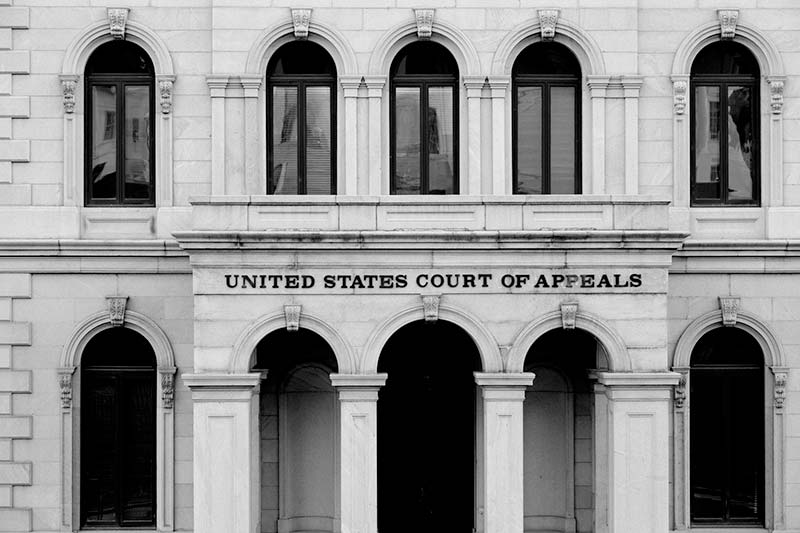Antoinette Lundy filed a medical malpractice lawsuit on behalf of her son after he suffered brain damage during childbirth. As Lundy’s healthcare providers were considered employees of the federal government for purposes of medical malpractice claims, her only remedy was to bring an action under the Federal Tort Claims Act (FTCA). However, Lundy discovered this fact after the FTCA’s two-year statute of limitations had expired. The Sixth Circuit denied her appeal to have the limitations period extended, holding that Lundy should have known about the healthcare providers’ federal status and acted accordingly in an expeditious manner.
Federal Tort Claims Act (FTCA)
Under the 75-year-old FTCA, private parties can sue the United States in federal court for most torts committed by individuals acting on behalf of the federal government. The United States assumes liability for the negligent or wrongful acts or omissions that employees commit in the course of carrying out their official duties. Under the statute, the United States is substituted as the defendant, and the individual employee cannot be held liable. Because the FTCA has a two-year statute of limitations, an administrative claim must be brought with the correct federal agency within two years of the date that the cause and existence of an injury are known or should have been known. If the administrative claim is denied, the claimant then has six months to file a lawsuit in federal court.
Background
Lundy’s son was born in May 2014 at Regional One Medical Center (known formally as Shelby County Health Care Corp.) in Memphis, Tennessee. The baby’s oxygen and blood flow were restricted during labor, leading to serious brain damage. Lundy, who believed her son’s injuries were caused by professional negligence, sought advice from legal counsel about whether to bring a lawsuit and was advised that she had no case yet because it was too early to determine the extent of her son’s injuries.
Under new counsel, Lundy filed a lawsuit in August 2017 in Tennessee state court against the medical center as well as Christ Community Health Services (CCHS), which is where she received prenatal care, and Dr. William G. Mullinax, a CCHS employee, helped deliver her baby. In November 2017, CCHS removed the case to federal court, where the United States subsequently was named as the defendant in place of CCHS and Dr. Mullinax, as per the FTCA. The case against the medical center was sent back to state court.
The government requested that the federal case be dismissed on the grounds that Lundy’s claim was barred by the FTCA’s two-year statute of limitations. The district court agreed, finding there was no reason to extend the limitations period, and Lundy appealed.
The Appeal
Courts are allowed to extend the statute of limitations period when a litigant’s failure to file a claim within that period was unavoidable. The Court considered several factors, including the plaintiff-appellant’s constructive knowledge, which is generally defined as information or knowledge of a fact imputed by a law to a person because the person could have discovered the fact by proper diligence, and her reasonableness in remaining ignorant of the particular legal requirement.
Lundy argued that she did not file a timely claim under the FTCA because she was unaware of CCHS’s federal status. Further, she said, it was reasonable for her not to dig too deeply to uncover it, given CCHS’s religious affiliation – which is reflected in its name as well as biblical references and Christian language on its website – and her understanding of the separation between church and state. Based on these factors, Lundy claimed it reasonable for her to assume that the organization could not be deemed a federal entity under the FTCA.
This assumption was unreasonable, the Court said, noting that the health center’s website provides clear notice of the federally designated status of CCHS and its employees for purposes of defending against medical tort claims. For instance, in 2014, the year Lundy gave birth, the CCHS website’s “Patient Info” section contained a webpage titled “FTC Deeming Notice,” which clarified that CCHS “receives HHS funding and has federal Public Health Service deemed status with respect to certain health or health-related claims, including medical malpractice claims, for itself and its covered individuals.”
Further, Lundy’s counsel should have known better than to adopt the client’s assumption that, because of its religious affiliation, CCHS could not be affiliated with the government. “The concept that the federal government is prohibited from affiliating with or aiding a religious institution has consistently been rejected by the Supreme Court,” the Court said. “Interaction between church and state is inevitable…and we have always tolerated some level of involvement between the two.”
The Takeaway
The Sixth Circuit made it clear that ignorance of a defendant’s coverage under the FTCA, when the plaintiff, or plaintiff’s counsel, should have known about it, is not a reasonable excuse for failing to file a claim within the statute of limitations period. This is true even when the institution in question has a religious affiliation.

